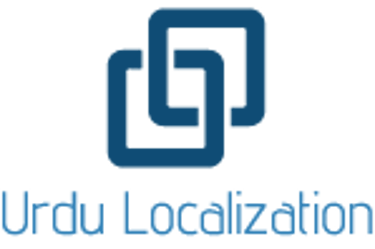
The Growing Demand for Urdu to English Translators in the Global Marketplace
3 min read

In today’s interconnected world, language has become one of the strongest tools for opportunity. For millions of people who speak Urdu as their first language, access to education, employment, and commerce often depends on reliable Urdu to English translation. At the same time, English to Urdu translation continues to expand opportunities for businesses, institutions, and media outlets that want to connect with South Asian audiences. This two-way demand has made professional Urdu translators more essential than ever before.
Why Urdu to English Translation Matters Today
The need for Urdu to English translation is rising sharply across industries. Immigration offices rely on accurate Urdu document translation for visas, citizenship applications, and official records. Universities around the world receive transcripts, diplomas, and research papers in Urdu that must be translated into English for evaluation. Even multinational corporations working with partners in Pakistan or with diaspora communities require flawless Urdu to English translation for contracts, tenders, and compliance documents. For all these purposes, professional Urdu translators provide not just linguistic accuracy but also the assurance that the meaning of each word is preserved.
Education, Research, and Academic Publishing
In academia, language is the bridge to global recognition. Scholars writing in Urdu often seek to publish in international journals, and this requires precise Urdu to English translation that captures not only technical accuracy but also academic tone. Professional translators trained in research and scientific terminology ensure that ideas are represented faithfully to English-speaking peers. On the other side, English to Urdu localization of academic resources makes knowledge more accessible to students in Pakistan, India, and across the Urdu-speaking diaspora. Without skilled translators, valuable knowledge risks being locked away in a single language.
Legal and Immigration Services
Legal institutions demand clarity and precision. An error in Urdu to English translation of a contract, birth certificate, or property record can cause delays or even legal disputes. Immigration authorities in the UK, Canada, and the United States frequently require certified translations, and here only human translators with the right accreditation can deliver the level of trust needed. This is why translation agencies specializing in Urdu are in such high demand, as they guarantee confidentiality, accuracy, and compliance with official requirements.
Healthcare and Patient Safety
Healthcare is another sector where Urdu to English and English to Urdu translation has life-changing impact. Patients who speak Urdu but need treatment abroad depend on accurate translation of medical records, prescriptions, and consent forms. Doctors and specialists cannot risk misunderstandings. At the same time, healthcare providers who want to serve Urdu-speaking patients must localize information about treatments, insurance, and procedures into culturally clear Urdu. In both directions, translators safeguard not just communication but also lives.
The Business Case for Urdu Translators
Companies are recognizing that Urdu is not a niche language but a major business opportunity. With over 230 million speakers worldwide, Urdu ranks among the most widely spoken languages. Professional Urdu translators and localizers help businesses expand into new markets by translating websites, product descriptions, customer service scripts, and marketing materials both from Urdu to English and from English to Urdu. This not only builds trust with Limited English-Speaking customers but also strengthens global competitiveness. A retail brand that can present a product in flawless Urdu gains immediate loyalty from audiences who feel respected and included.
Why Human Translators Outperform Machines
While AI translation tools are improving, they remain far from reliable when it comes to Urdu. Urdu’s right-to-left script, complex grammar, and poetic idioms often confuse machine systems. A phrase may be rendered literally but stripped of its cultural meaning, leaving the reader puzzled or offended. Human translators, on the other hand, understand context, cultural nuance, and tone. They know when a legal phrase requires strict formality or when a marketing slogan needs a touch of creativity. Comparing human Urdu translation vs. machine output highlights why professionals remain irreplaceable for sensitive or high-stakes content.
The Role of Proofreading and Editing
Even the best translation requires a second set of eyes. Urdu proofreading and editing services ensure that every sentence is consistent, accurate, and culturally appropriate. For large-scale projects such as publishing, government communication, or corporate training programs, proofreading is what guarantees polished quality. Without it, even a small error in terminology can harm trust. This is why agencies that specialize in Urdu translation always include editors and proofreaders in their workflows, making sure clients receive content ready for immediate use.
Freelance Urdu Translators and Agencies
With demand rising, businesses often ask whether to hire freelance Urdu translators or work with a full translation agency. Freelancers offer flexibility and often specialize in specific industries such as legal or medical Urdu translation. Agencies, however, bring scalability, confidentiality, and team-based consistency. In reality, many organizations use both, choosing freelancers for targeted projects and agencies for high-volume or sensitive translations. The key is always to work with certified professionals who understand the responsibility of translating between Urdu and English.
Confidentiality and Trust as a Standard
Confidential Urdu translation services are especially critical in sectors like government, finance, and healthcare. Clients need assurance that sensitive documents are handled with discretion. Professional Urdu translators and agencies follow strict confidentiality agreements and secure workflows, something that machine translation platforms can never guarantee. For institutions managing personal data or business contracts, this trust is non-negotiable.
As the global marketplace becomes increasingly multilingual, the demand for professional Urdu translators will only continue to grow. From academia to healthcare, from immigration to business, Urdu to English and English to Urdu translation is the key to access, inclusion, and trust. For individuals and organizations alike, investing in skilled translators is not simply about language — it is about creating real opportunities in a world where communication defines success.
